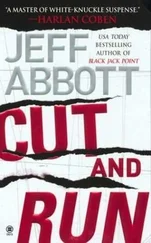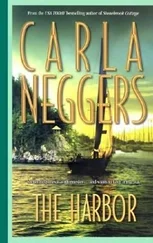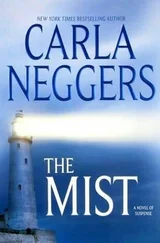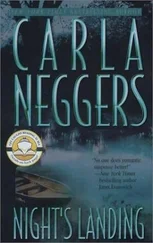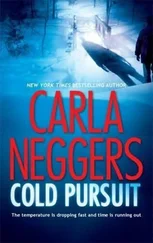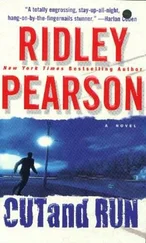Hendrik de Geer walked along Schupstraat, one of the main streets of Antwerp’s busy, highly congested and very wary diamond district. The buildings were mostly unremarkable, but inside were some of the greatest diamond minds and some of the most sophisticated communications and security systems in the world.
The Dutchman knew enough about the code that operated here not to be lulled into a false sense of security. He moved slowly but with apparent purpose, not wanting to attract attention to himself. It was a gray day, cold and damp on the North Sea, and the streets were crowded with diamontaires. Hendrik noticed neither the weather nor his own sense of ambivalence as he walked past a group of men in the distinctive garb of the Hasidim. Many of Belgium’s Jews worked in the diamond business. As moneylenders, cutters, and polishers and as a persecuted people, they had dealt with diamonds for centuries. Cutting was one of the few crafts they had been permitted to practice, and as moneylenders they were often asked to exchange diamonds for gold and silver. When forced to flee their homes, they could take the easily portable gems with them, knowing diamonds were valued virtually anywhere and would help them to reestablish themselves. The Holocaust had decimated the twentieth-century diamond industry in Amsterdam and Antwerp, but, although Amsterdam never fully recovered its prewar status, Antwerp had regained its place as the diamond capital of the world. Here again could be found the most highly skilled cleavers, the ones who knew what to do with difficult roughs.
Among them was Johannes Peperkamp, a Gentile, an old man but still a legend in the business. He had knowledge, and he had instinct. No matter what problems a rough presented, he could cut it successfully, and few remembered the rare times the hands of Johannes Peperkamp-or any Peperkamp-had reduced a valuable rough to splinters.
But Johannes was in his seventies now. Age, computers, and lasers were cutting into his business, and Hendrik wasn’t surprised to find that his old friend’s shop was located in one of Schupstraat’s lesser buildings. Security wasn’t as tight as it would have been in other buildings, and Hendrik, speaking in Dutch to the Flemish security guard, was quickly permitted to go upstairs. As he mounted the two dingy flights and approached a door with a frosted-glass window, Hendrik felt no change in himself. His heart wasn’t pounding. He wasn’t sweating. He was doing what had to be done. That was all.
He zipped his jacket halfway. Until now, he hadn’t noticed the cold. He sighed at his weakness and pushed open the door.
Johannes Peperkamp was sitting at his ancient desk eating his lunch-bread and cheese and a cup of hot tea. His eyes looked glazed, and he chewed slowly. He hadn’t heard Hendrik enter.
Closing the door behind him, Hendrik took a moment to stare. He remembered Johannes as a vibrant and healthy man, gentle in his way, intelligent, already one of the world’s premier diamond cleavers. He’d had little choice in the matter. When you were a Peperkamp male, you were expected to be in diamonds. At least in Amsterdam you were for the last four hundred years. After WW II Johannes had taken his business to Antwerp. Now he was the last of the Peperkamp males; Juliana Fall was the only member of the next generation. The Peperkamp diamond tradition would die with her uncle.
So many years gone since he’d last looked into those blue eyes, Hendrik thought, weighing the passage of time. They’d both survived to grow old. It seemed so inconsequential now, more than forty years later. If they’d died during the war, would they have missed so much? He didn’t think so. And they’d have died as friends.
Although Hendrik knew not to judge the power and success of anyone involved in diamonds by his surroundings, it seemed Johannes’s day had passed. How many diamontaires even knew Johannes Peperkamp was still alive, still working? His shop was small and pathetic. Hendrik remembered the large roughs, the people flowing in and out, the feel of life and success, back in Amsterdam. This place was little more than a small, shabby room. It contained all the paraphernalia of his trade-the lights, wedges, hammers, mallets, saws, loupes, and roughs. A yellowed photograph of Johannes with Harry Winston, which had appeared in Life magazine, hung on the wall. The years hadn’t worn well on Johannes. Time and technology-computers, lasers-were making him obsolete.
The old cutter swallowed a bite of his bread and cheese and wiped his long fingers with a paper napkin as he started to glance up. “Yes? I’m not expecting-” He spoke in Dutch, but his mouth snapped shut and his piercing eyes fastened on his fellow Dutchman. “Hendrik de Geer.”
There was no wonder in the old man’s tone, no surprise, not even any hate. Already he’d reduced Hendrik to a nonentity. At most, a bug crawling across his floor. Hendrik had forgotten how arrogant and unshakable Johannes could be-how he’d looked down his big nose at Hendrik. The de Geers weren’t diamond people. Hendrik had grown up on the fringes of that world, not in its midst as Johannes had.
“So you remember me,” Hendrik said, although there had been no question in his mind that Johannes would. “I’m honored.”
“Don’t be.” The old cutter set down his sandwich. “None of the memories are good ones.”
“Then perhaps your mind isn’t as sharp as it once was. We used to skate the canals of Holland together in the winter, before the war, and race bicycles in the summer. Remember, Johannes?” Hendrik was surprised by the sadness in his voice. “Those were fine days, ones not to forget.”
Johannes shrugged. In all the years he had known him, Hendrik had never seen Johannes Peperkamp show fear. He would today, unless he was a fool. That was some consolation, Hendrik decided, for this miserable predicament. As much as they’d been friends, a part of him had always wanted to make Johannes sweat.
But for now, the old man continued to chew his lunch, and not even his fingers shook. It was as if he believed there was nothing left Hendrik de Geer could do to him.
“Do you know why I’m here, Johannes?”
He sipped his tea, swallowing. “I’m sure you’ll tell me.”
There was that tone of cool superiority once more, and moving deeper into the shop, Hendrik recalled fewer moments of friendship and more those of indignation. He’d never been good enough for the Peperkamps. When he was a boy, his mother had tried to tell him that that was all in his head, but he knew better.
Catharina…
Yes, she was different. The others had expected him to fail, and yet they’d put their trust in him-and he’d done what he’d had to do. As he was now.
He said without drama, “I must have the diamond, Johannes.”
The old cutter gestured to his shop. “As you see, I have many diamonds-not so big, perhaps, as in the past, but some fine stones. Take what you want. It makes no difference to me.”
“These diamonds don’t interest me.”
“They don’t interest me, either, but they’re all I have. I’m an old man, Hendrik. Not very many people bring me the big diamonds anymore.” He held up his large, bony hands. “They don’t trust these.” Then he pointed to his eyes. “Or these.”
Johannes spoke without self-pity and shrugged as he resumed drinking his tea. Hendrik moved closer, but the old man looked at him without interest. If he hadn’t known Johannes Peperkamp better, Hendrik might have panicked, thinking he’d come to the wrong place.
He took the teacup from the old man and set it down. Nothing in Johannes’s expression indicated fear or anger-or even curiosity. I am nothing, am I, old man? Hendrik thought, but he refused to let his frustration show. “You know what I want, Johannes.”
Читать дальше
Конец ознакомительного отрывка
Купить книгу


